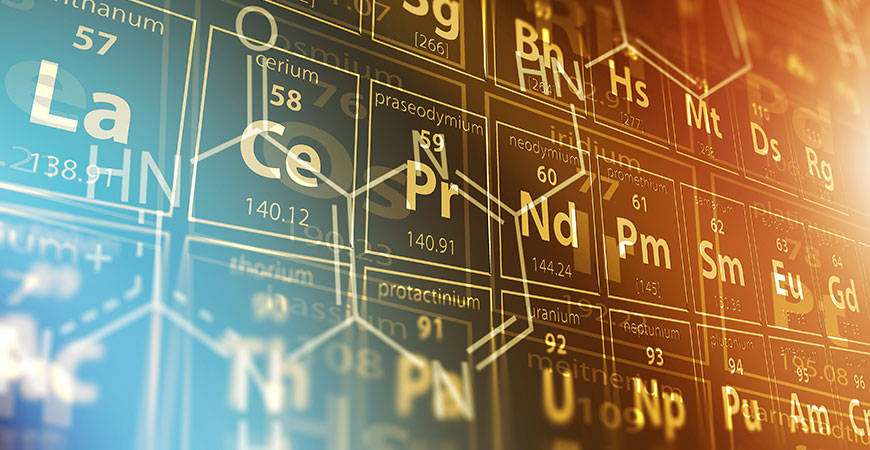
Scientists know the whats and whys of using light, heat and electricity to direct chemical reactions toward an end goal. What’s less well understood are the effects mechanical force can have on chemistry.
Thanks to a three-year, $1.8 million National Science Foundation (NSF) grant, a team of researchers — including mechanical engineering Professor Ashlie Martini — are forming a new center for this emerging area of study.
“It’s relatively unexplored, but mechanical force can be used to drive chemical reactions,” Martini said. “This approach has the potential to minimize energy use, waste and toxicity in chemical synthesis. Mechanochemistry could be a better way.”
This is one of three awards for Phase 1 Centers for Chemical Innovation from the National Science Foundation Division of Chemistry and will support the NSF Center for the Mechanical Control of Chemistry (CMCC), led by Professor James Batteas of Texas A&M University. The multi-disciplinary team includes Martini and researchers from Texas A&M, the CUNY-Advanced Research Center, the University of Pennsylvania and Northwestern University. The CMCC will have branches on each campus.
“The broader impacts of this work will be a new perspective on chemical reactivity to develop new chemical synthesis technologies,” Batteas said. “Imagine being able to do on-demand synthesis without the need for complex reactors. Such approaches may enable more rapid prototyping of customized drugs or carrying out complex chemical syntheses on Mars using only locally sourced materials.”
Centers for Chemical Innovation are designed to bring together researchers with diverse expertise to support high-risk, transformative science and energize the chemistry community to take on grand challenges. The NSF also hopes to creatively engage the public in science while integrating research with education, both internally and through multiple outreach activities.
The CCI Program supports projects that are too complex and multi-faceted for individuals or small groups of researchers to tackle on their own, the NSF said.
“This new center adds to UC Merced’s rapidly growing portfolio of highly prestigious, major research centers. The CMCC highlights our expertise at the intersection of chemistry and mechanics. Professor Martini is an amazing researcher and she is the ideal person to lead this effort given her outstanding record of innovative research in tribology and her engagement in a number of highly interdisciplinary teams," interim Vice Chancellor for Research and Economic Development Marjorie Zatz said. "She is also an exceptional mentor to graduate and undergraduate students, and I know she will engage them directly in this research.”
“Professor Martini continues to excel in research advances. This exciting effort is the first phase of a potentially much larger effort to explore a new approach to traditional chemical synthesis.”
The center Martini is part of aims to develop quantitative models for mechanochemical reactions that can be applied to industrial-scale processes. Developing the reactors and theories to understand chemical bond breaking and making will bridge the gap of mechanochemical effects across multiple scales, including the atomic scale.
“Probably the best demonstration of mechanochemistry is a mortar and pestle,” Martini said. “But it’s difficult to see inside that reaction, and it’s not well controlled.”
She said her lab will use some of the same techniques developed for tribology — the study of friction, wear and lubrication — to control and apply force to drive reactions.
“Professor Martini continues to excel in research advances. This exciting effort is the first phase of a potentially much larger effort to explore a new approach to traditional chemical synthesis,” School of Engineering Dean Mark Matsumoto said. “Not only is this approach innovative, it could bring significant benefits to sustainability by reducing energy, water and waste disposal requirements. Sustainability is at the forefront of our school’s research efforts.”
Developing the use of mechanical force to drive chemistry as a reliable method for chemical synthesis has largely been ignored because the tools to investigate how applied forces affect reactions have been underdeveloped.
The CMCC plans to create a whole new toolbox that will allow researchers to define and control the forces applied to molecules in very precise ways. In partnership with Eastman and Dow Chemical Companies, the researchers will gain a new perspective on chemical reactivity that could enable new technologies, including solvent-free chemical processing. They also hope to discover new synthetic pathways that have not been open to traditional methods.
For phase one, the researchers will work to demonstrate that their work can change the way chemistry is thought of and practiced. After two years, the team will apply for the funding to begin phase two.
The CMCC team is also planning education and outreach programs, including summer undergraduate research experiences, through which undergrads would go to different campuses and join other undergraduate and graduate students in center activities; and a mechanochemistry-themed science, technology, engineering and math (STEM) summer camp for high school students; a youth adventure camp; and science-history exhibits.
“Our recruitment goals are ambitious and include engaging veterans, women and students from underrepresented groups,” the team wrote. “Student lab exchanges and entrepreneurship activities enhance the student experience while contributing to the innovation potential of the center.”
Additionally, the researchers have technology-transfer strategies to ensure the promotion of innovation throughout the center.
“It’s going to be a busy two years,” Martini said.
The CMCC proposal came about in response to the NSF’s desire to fund programs that dramatically change how different sciences are studied and used. Martini and her teammates have been working on the proposal for the past four years, and she is proud to help bring another NSF center to UC Merced.
“This is really exciting,” she said. “These centers are a big deal for the campus.”
Lorena Anderson

Senior Writer and Public Information Representative
Office: (209) 228-4406
Mobile: (209) 201-6255






